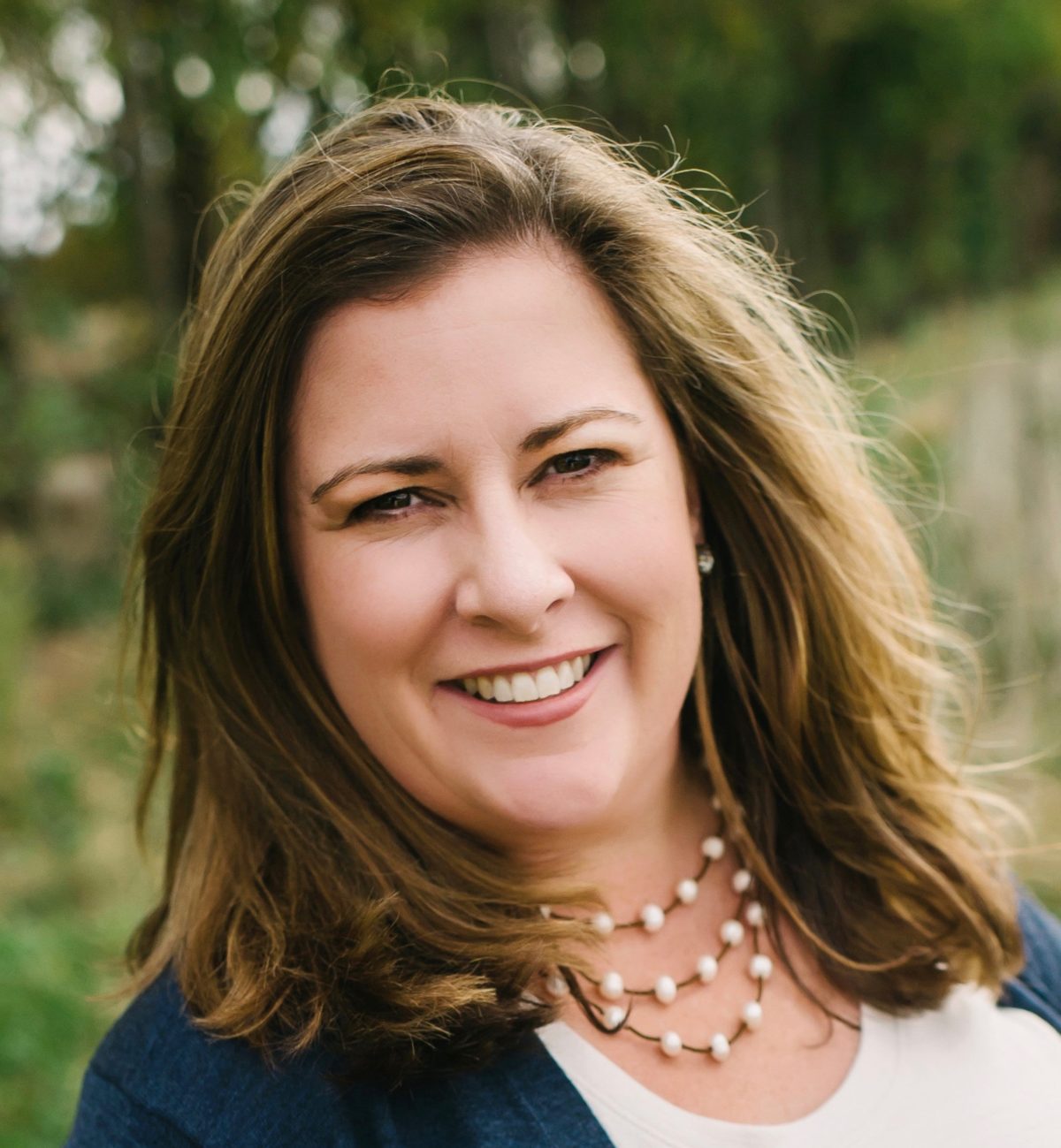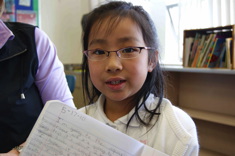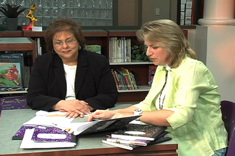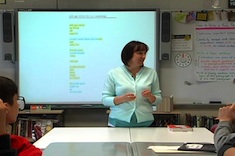Reflection is important to me, especially at the end of another school year. I am gathering stacks of professional books –- some to read, some to reread, as I plan for next year. I am thinking of what went well this year and how I need to grow. As I consider how I embed reflection throughout the year into my professional life, I realize how important it is to leave room for students and parents to reflect as well.
Reflecting with Parents
I ask parents of my fifth graders to reflect several times during the year, and that reflection begins before the year starts. Years ago my oldest son Luke started kindergarten in my district. I will never forget how I felt. I was apprehensive; I wanted him to start off well. I desperately wanted to go to the teacher, take some time to meet, and share my thoughts about Luke — especially how he was an amazing kid, but so shy. I wanted to explain his quirks, strengths, and weaknesses. I realized if I felt this way, many other parents probably did as well. I invited my students’ parents to write me a letter. Each year I welcome my students with a letter, but I also send one to their parents. In it I ask them to write back, telling me anything they think I need to know to help their child be successful this school year. What I get back is amazing — pages upon pages fill my mailbox. I often see the same message repeated -– this is the first time they have been asked to write a letter to a teacher. I am thanked repeatedly. These letters are so helpful -– I quickly know what issues my new students have faced in past years, and how I can help them succeed. I pull the letters out again before parent/teacher conferences, and reflect upon how I am meeting my students’ needs.
There are two other times I ask parents to reflect. One is before parent-teacher conferences, almost halfway through our school year. I send a quick survey home to see how the parents feel the year is going, what issues they are having, and if there is anything specifically they would like to discuss when we meet. This helps me to structure the conferences so that I ensure we have enough time to discuss anything they have on their minds. Since I teach multiple sections of language arts and there might be an issue with other teachers my students see daily, this allows me to gather any information I need for the conference ahead of time, or have another teacher there if we need to include them.
Finally, I send home a reflection survey at the end of the year to see how the year went from a parent’s point-of-view. My questions range from whether they saw growth in their child, to their feelings on how I communicated with them throughout the year.
Here are some of my favorite questions to use on the final survey:
How do you feel the school year has gone for your child?
How could I have improved your child’s experience this year?
What in your opinion has been the best thing about fifth grade for your child?
How do you feel about the homework I’ve assigned?
How do you feel about my effort to communicate with you this year? Could I have improved in this area? Is there anything you disliked or would like to see changed?
What areas did you see your child grow in this year? Was there any areas you did not see growth in? (These could be academic areas or social)
Did you see an improvement in reading? (Ability wise and/or interest wise)
Is there anything you would like to let me know?
This survey helps me to rethink and reflect on my practices, and ensure I am including parents as part of the education process.
Reflecting with Students
I work all year to help my students practice reflection. I explain that this is a tool for life, not just for the classroom. We don’t always make the right choices, but hindsight allows us to examine our decisions and can help shape the people we become.
In academics, we reflect regularly at the end of a unit. I ask for their feedback regarding what they learned and the structure of the unit. This is helpful to me as I look to tweak lessons when I use them again.
I scatter reflection throughout the entire year, but the end of a school year naturally lends itself to deeper analysis. In reading class we pore over our lists of books we have read, creating signs to celebrate the number read that year. We write papers on how we have grown as readers.
In writing class we flip through our portfolios of final drafts from the school year. The students select the draft that they feel shows the most growth for them as a writer and tell me why. They also fill out answers to questions that help them reflect on their writing growth from the school year. They share what areas they feel they grew in the most, and what areas still feel like a struggle in relation to writing. I read over the reflections to see if there are common weaknesses -– something I need to strengthen in my own teaching before the next school year.
The final piece of reflection is looking at the year overall. I have all three of my reading classes fill out this survey. It asks them to think back over fifth grade, listing highs and lows, favorite and least favorite subjects, how they grew as readers, areas they still need to grow in, what feeling they had in coming to reading class each day, things I should change, and things I shouldn’t change.
Here are questions I use for the final survey:
What has been the best part of the year?
What has been the worst part of the year?
Favorite subject? Why?
Least favorite? Why?
What area do you think you’ve grown the most in this year?
What area do you still need to work on next year?
If you could change anything about our reading/ writing class, what would you change?
What would you never change about this class?
Is there a way I could have helped you that I didn’t?
How did you feel about the homework load this year?
How did you feel about coming to our class each day?
Is there anything else you would like to tell me?
Asking students and parents to give this kind of feedback is intimidating. You are placing yourself out there and you are vulnerable. Yet I think it is the single best thing I do to inform my practice. I want to know what parents and students think, and I want to know if I am meeting their needs. This does not mean I will always make them happy, and there have been plenty of times I haven’t. But I’ve found relationships are strengthened by giving everyone a voice.









